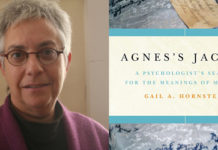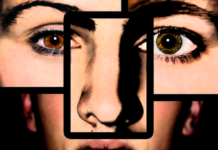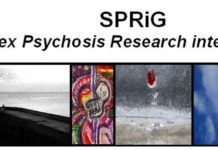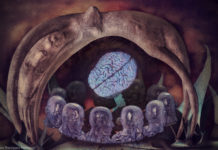Why is the Field of Psychotherapy Still Fractured into Different Approaches?
Psychotherapy is dominated by contradicting schools of thought, exhibits a gap between research and practice, and repackages old ideas rather than finding clinical consensus.
“Open Dialogue: Finland’s Alternative Approach to Mental Illness”
"Almost 30 years ago a group of clinicians in Finland decided to treat psychosis differently. Their approach, known as Open Dialogue, has impressive recovery...
Researchers Identify 27 Categories of Emotion
A new study finds that emotions may be represented by 27 categories, with each category relating to others in a more complex and continuous fashion than previously understood.
Tom Arnkil on “Unconditional Respect for the ‘Otherness’ of Other People”
Tom Arnkil on the book he co-authored with Jaakko Seikkula, and the necessity for the "Unconditional Respect for the 'Otherness' of Other People."
Opening Doors in the Borderlands: An Interview with Liberation Psychologist Mary Watkins
MIA’s Micah Ingle interviews Mary Watkins about reorienting psychology toward liberation and social justice.
First-Person Accounts of Madness and Global Mental Health: An Interview with Dr. Gail Hornstein
Dr. Gail Hornstein, author of Agnes’s Jacket: A Psychologist’s Search for the Meanings of Madness, discusses the importance of personal narratives and service-user activism in the context of the global mental health movement.
Study Investigates Long-Term Effects of Social and Emotional Learning Programs
Social and Emotional Learning (SEL) programs have gained popularity in U.S. schools in recent years. A new study examines the nature and longevity of their impact on students.
“Listen Up! Day 3: Take a Breather”
Day 3 of WNYC Only Human’s radio show, called Listen Up, focuses on the importance of listening with empathy. They interview Ken Feinberg, a mediator who met with victims after the September 11th attacks, the Sandy Hook shootings, and the Boston marathon bombing.
Mindfulness Therapy May Be More Effective Without Antidepressants
While an estimated 74-percent of patients diagnosed with major depression receive a prescription for an antidepressant, new research reveals that mindfulness-based cognitive therapy (MBCT)...
“Does Psychotherapy Research with Trauma Survivors Underestimate the Patient-Therapist Relationship?”
Joan Cook, professor of Psychology at Yale, writes than in her work with military veterans she realized that her psychotherapy techniques mattered much less than her training had indicated. Instead, what mattered was “the bond forged over years of therapy,” known as “the therapeutic alliance.”
Neoliberalism Drives Increase in Perfectionism Among College Students
Meta-analytic study detects upsurge in patterns of perfectionism in young adults and explores how neoliberalism contributes to this trend.
Flexible Treatment Planning Improves Depression Outcomes in Youth
Researchers explore the effects of augmented treatment at various points in interpersonal psychotherapy for adolescents diagnosed with depression, highlighting previously unidentified critical decision points (i.e., relatively early in the treatment sequence).
“How Meditation Changes the Brain and Body”
In the New York Times Well Blog, Gretchen Reynolds covers a study published in Biological Psychiatry showing that mindfulness meditation, unlike a placebo, “can change...
Group Mindfulness Shows Promise Reducing Depression Associated with Hearing Voices
A new study out of Kings College London found that twelve sessions of a group mindfulness-based therapy relieved distress associated with hearing voices while reducing depression over the long-term. The person-based cognitive therapy (PBCT) intervention had significant effects on depression, voice distress, voice controllability and overall recovery.
The Alternative to Drugs: The Real Treatment for Human Suffering
My opposition to psychiatric drugs is not just that they are harmful, dangerous, and destructive. That would be plenty motivation enough. And it is. But in addition, my profession, which I love and value, has been hijacked by the APA and Big Pharma. It is my goal to return psychiatry to its proper place - where good psychotherapy is understood to be the treatment for human suffering.
Psychologist Rethinks Psychotropic Medications, Calls for Renewed Dialogue
Psychologist and Professor Amber Gum has published the story of her personal journey of rethinking psychotropic medication in a special issue on "The Politics of Mental Health" in The Journal of Medicine and the Person. Influenced by Mad in America and the work of Robert Whitaker, Gum became aware of evidence that “suggests that psychotropic medications are less effective and more harmful than most believe” and now hopes to encourage other mental health professionals and researchers to engage in open-minded, critical self-assessment of standard practices.
AVATAR Therapy Shows Some Positive Outcomes, Now What?
In a commentary piece, Ben Alderson-Day and Nev Jones discuss the AVATAR therapy research for psychosis and propose further questions.
Schizophrenia’s Tangled Roots
From Sapiens: Researchers are increasingly recognizing the role that social and environmental factors, including childhood abuse, stressful events, and poverty, play in the development of...
Social Recovery Therapy for First Episode Psychosis
Social Recovery Therapy shows promising results for individuals who experience first-episode psychosis.
New Findings Suggest Masculinity is a Risk Factor for Suicidal Thinking
Men who report being self-reliant may be at greater risk of suicidal thinking.
When Does it Help to Have Background Information in Child-Centered Play Therapy?
Knowing the client’s history can help foster genuine empathic responding, a key component to child-centered play therapy.
Eat Breathe Thrive: Chelsea Roff on Eating Disorders, Trauma, and Healing with Yoga and...
Chelsea Roff is the Founder and Director of Eat Breathe Thrive (EBT), a non-profit with an inspired mission to bring yoga, mindfulness, and community support to people struggling with negative body image and disordered eating. I reached out to Chelsea to learn more about her life and organization, which she writes, “…is like AA for people with food and body image issues, plus yoga and meditation.” Chelsea shared her journey from life as a patient to yogi, author, and innovative community organizer. With her permission, you can find this interview below.
What Transgender Actors can Teach Medical Residents
A new training program teaches medical residents how to provide appropriate care and services to transgender clients.
How to Involve Youth in Their Own Mental Health Care
Clinicians play a key role in empowering adolescents and their parents to make decisions about their mental health treatment.
Researchers Explore Sexuality and Gender in the Context of Psychosis
Nev Jones and a team of researchers examine how sex, sexuality, and gender-related content are underexplored in contemporary research on psychosis.
























